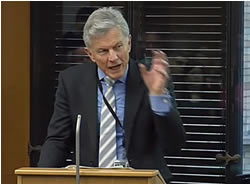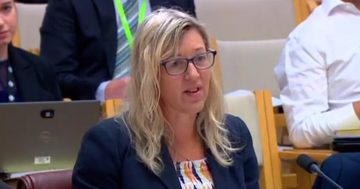UNITED KINGDOM
 UK Government Departments have been accused of “unrealistic planning that risks public money being wasted on a grand scale”.
UK Government Departments have been accused of “unrealistic planning that risks public money being wasted on a grand scale”.
The report of Auditor-General, Amyas Morse (pictured) on the effectiveness of the Treasury and Cabinet Office in improving long-term planning and spending decisions across Government found that business planning had improved since the last examination in 2016.
However, the report found that, despite the creation of Single Departmental Plans (SDPs) from 2015, which required Departments to set out how they would implement their objectives to deliver services and track performance, the Government still needed a more integrated planning and spending framework to ensure its plans were deliverable and affordable.
In a stark warning as Departments prepared for the 2019 Spending Review, Mr Morse said there was a risk of a cycle of overoptimism, short-termism and silo decision-making.
“Unrealistic planning based on wishful thinking risks public money being wasted on a grand scale,” Mr Morse said.
“HM Treasury and the Cabinet Office need to work together to deliver integrated and realistic short, medium and long-term planning.”
The report highlighted that the Treasury had begun to focus more on the longer term, with some areas such as defence and the National Health Service being given longer-term spending plans, as well as committed funding for housing, infrastructure, and research and development beyond spending review cycles.
This longer-term approach was, however, yet to be applied to monitoring the performance of individual Departments.
The report confirmed the Treasury was considering how best to allow for cross-Departmental bids in the next Spending Review, but it concluded that Permanent Secretaries and other accounting officers were not adequately incentivised to make realistic business plans.
Responding to the report, Chair of Parliament’s Public Accounts Committee, Meg Hillier said it matched the Committee’s experience that Government “makes hasty decisions, using sticking-plaster funding and cost shunting between Departments, rather than focusing on long-term solutions”.
London, 30 November 2018









